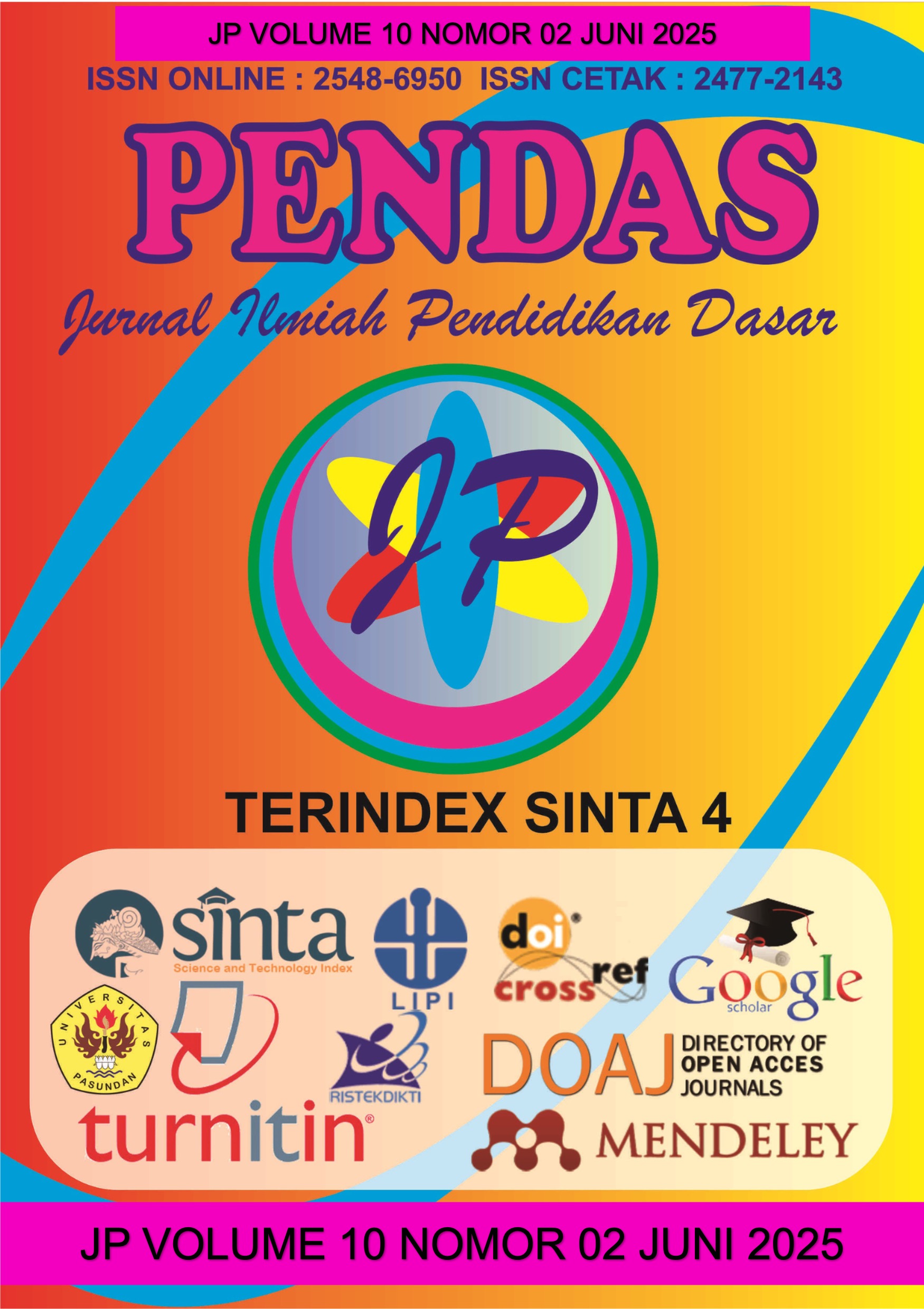KOMPARASI PENERAPAN MODEL CONTEXTUAL TEACHINGLEARNING DAN MODEL INQUIRY TERBIMBING TERHADAP HASIL BELAJAR IPAS KELAS IV UPT SDN INPRES SALIMBONGAN
DOI:
https://doi.org/10.23969/jp.v10i02.26474Keywords:
Comparison, Learning Model, Contextual Teaching Learning, Guided Inquiry, Learning OutcomesAbstract
This study aims to determine the comparison of student learning outcomes in Contextual Teaching Learning and Guided Inquiry learning in class IV UPT SDN Inpres Salimbongan. The approach used is quantitative with a quasi-experimental research type in the form of a pretest-posttest group design. The population is all students of UPT SD Inpres Salimbongan, while the sample is class IVA as an experimental class of the Contextual Teaching Learning model with a total of 19 students and class IVB as an experimental class of Guided Inquiry with a total of 19 students, the sampling technique used is purposive sampling technique. The research data were obtained by providing Pretest and Posttest questions. The data analysis technique is the Independent Sample T-test. The Guided Inquiry model is more effective in improving learning outcomes because it emphasizes exploration. Investigation, and active involvement of students, meanwhile, Contextual Teaching Learning is more effective in building conceptual understanding by connecting material with real experiences of students. Based on the results of the inferential statistical analysis, it shows Sig (2-tailed) = 0.000 <0.05, so H0 is rejected and H1 is accepted. The results of the study indicate that there is a significant difference between the learning outcomes of students who use the Contextual Teaching Learning model and the Guided Inquiry model. Thus, the conclusion of this study is that there is a difference in the learning outcomes of students using Contextual Teaching Learning and Guided Inquiry learning models in class IV UPT SDN Inpres Salimbongan.
Downloads
References
Wajdi, F., Seplyana, D., Juliastuti, Rumahlewang, E., Fatchiatuzahro, Halisa, N. N., Rusmalinda, S., Kristiana, R., Niam, M. F., Purwanti, E. W., Melinasari, S., & Kusumaningrum, R. (2024). Metode Penelitian Kuantitatif. Bandung: Widina Media Utama
Creswell, J.W., & Creswell, J.D. (2021). Research Design: Qualitative, Quantitative, and Mixed Methods Approaches (5th ed.). Los Angeles: SAGE Publications.
Min, M., Rahayu, S., & Putra, A. (2023). Metodologi Penelitian Kuantitatif: Teori dan Aplikasi. Jakarta: Mitra Wacana Media.
Yuwanto, L. (2019). Pengantar Metode Penelitian Eksperimen (Edisi 2). Yogyakarta: SAC Fakultas Psikologi Universitas Surabaya.
Afriyani, Andri. (2018). Pembelajaran Contextual Teaching and Learning (CTL) dan Pemahaman Konsep Peserta didik. Jurnal Al-Muta’aliyah STAI Darul Kamal NW Kembang Kerang, 1(3), 2-6.
Baharuddin, M. (2021). Pengaruh Model Pembelajaran Inovatif dalam Meningkatkan Hasil Belajar. Jurnal Pendidikan Indonesia, 18(2), 67-80.
Karim, Abdul. (2017). Analisis Pendekatan Pembelajaran Contextual Teaching and Learning (CTL) di SMPN 2 Teluk Jambetimur, Karawang. Jurnal Formatif, 7(2), 147-148.
Blaschke, Lisa Maric. (2020). Heutagogy and lifelong learning: A review of heutagogical practice and self-determined learning. The International Review of Research in Open and Distributed Learning, 21(2), 56-58.
Naerofah, Endang Sri Budi Herawati. (2022). Model Pembelajaran Contextual Teaching and Learning dalam Pendidikan Dasar. Jurnal Pendidikan Inovatif, 10(2), 37-38.
Apriliana Drastisianti, Arini Kusuma Dewi, Dante Alighiri (2023). Effectiveness of guided Inquiry learning compared to CTL in fostering scientific literacy among high school students. International Journal of Educational Studies, 11(3), 236-237.
Downloads
Published
Issue
Section
License
Copyright (c) 2025 Pendas : Jurnal Ilmiah Pendidikan Dasar

This work is licensed under a Creative Commons Attribution 4.0 International License.














































